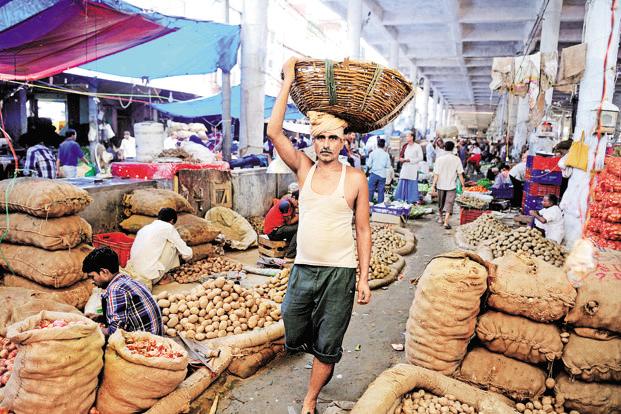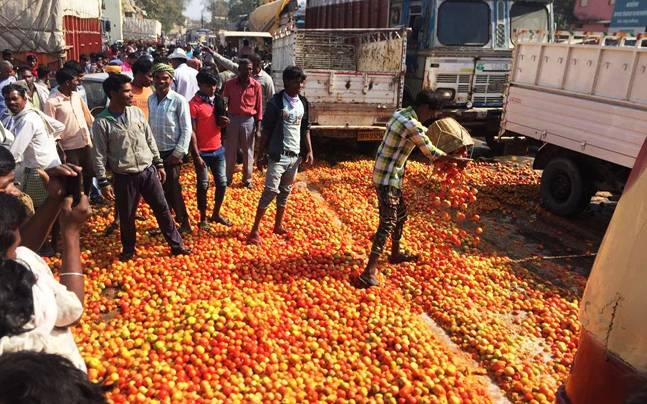The plight of the rural economy and especially one that revolves around farmer can be understood by visiting any of the local markets where farmers have to bring their produce to auction to licensed trading agents.
NOTE: This is a continuation of a series. See Part 1.
The extremely exploitative business environment which has been put in place for agricultural produce and livestock is the BIGGEST reason for the distress in the agricultural sector.
There is simply NO free market for agricultural produce in India!
Most people will be shocked to know that farmers cannot sell their produce directly to retail customers because the existing APMC laws mark a range of agricultural produce as notified agricultural produce – these include some livestock as well, and farmers can sell these notified products only to licensed trading agents in government-sanctioned agricultural markets (mandis).
The law to this effect were put in place through the Essential Commodities Act and the Agricultural Products Marketing (Regulations) Act which effectively divides each state into multiple market areas each governed by the state’s own APMC Act – that is right! Each state has its own regulations with its own list of notified products!
As a result of these laws farmers from those market areas areas can only sell to the local mandis in that specific area and that too only to authorized trading agents
As for these trading agents, each trading agent has to be licensed for that specific mandi. That is, they cannot trade in any mandi even within the same state. Also, These trading agents have become a law unto themselves and control the pricing via cartel-like arrangements.
Different governments have made some half-hearted attempts (1, 2, 3) at breaking the monopoly of these traders in these mandis.. but there are too many players with big political links and so these attempts inevitably fail.

Farmers sell their produce to these traders who then flip it to other buyers in a matter of few minutes at a much higher price….often farmers get less than 25% of the price at which the product is sold in the retail market.
Apart from the low prices that farmers get from these auctions, the farmer also has to pay a 10% commission to the agent and also a fee for entering the market! And oh, the farmer also has to bear the transportation and the labour costs involved in taking the produce to the mandi!
This leads to situations like this: farmers dumping tomato because the price dropped to 50 paisa / kg.

Over the years private sector players have entered the fray to purchase produce directly from farmers – even big players such as BigBasket. But the extent to which these approaches will work remains to be seen.
What is also not very clear is how legal these direct purchases are in light of the existing APMC laws.
BOTTOM LINE:
- Unless the APMC act and the Essential Commodities Act are modified to allow farmers a free market for their produce, the issue of farming distress cannot be solved. This requires political will and also for the citizens themselves to stand up on behalf of the farmers to force this legislation through.
- The government’s attempts at setting a Minimum Support Price (MSP) etc is meaningless and futile when farmers have no choice – they have to sell their produce to whoever can buy them and whatever price they are willing to pay for it.

